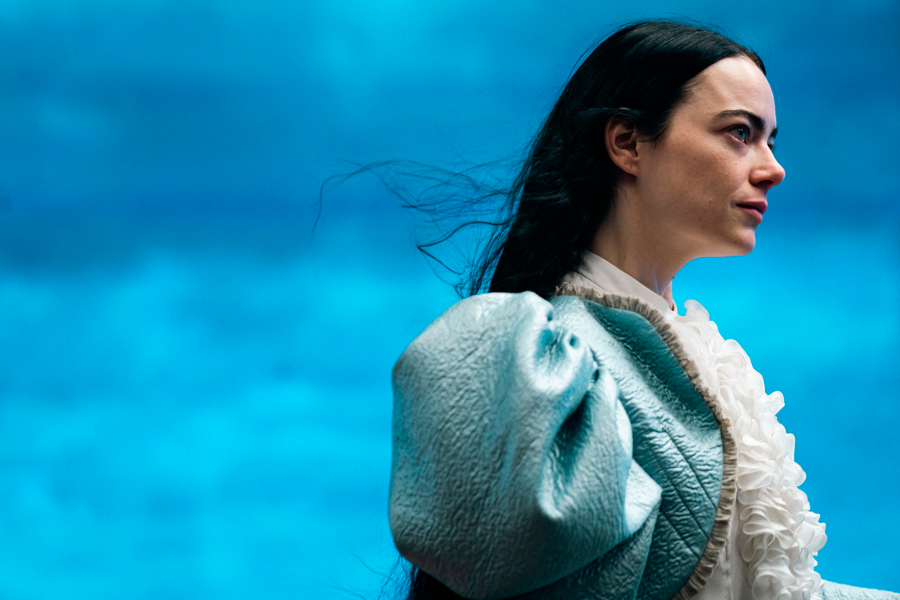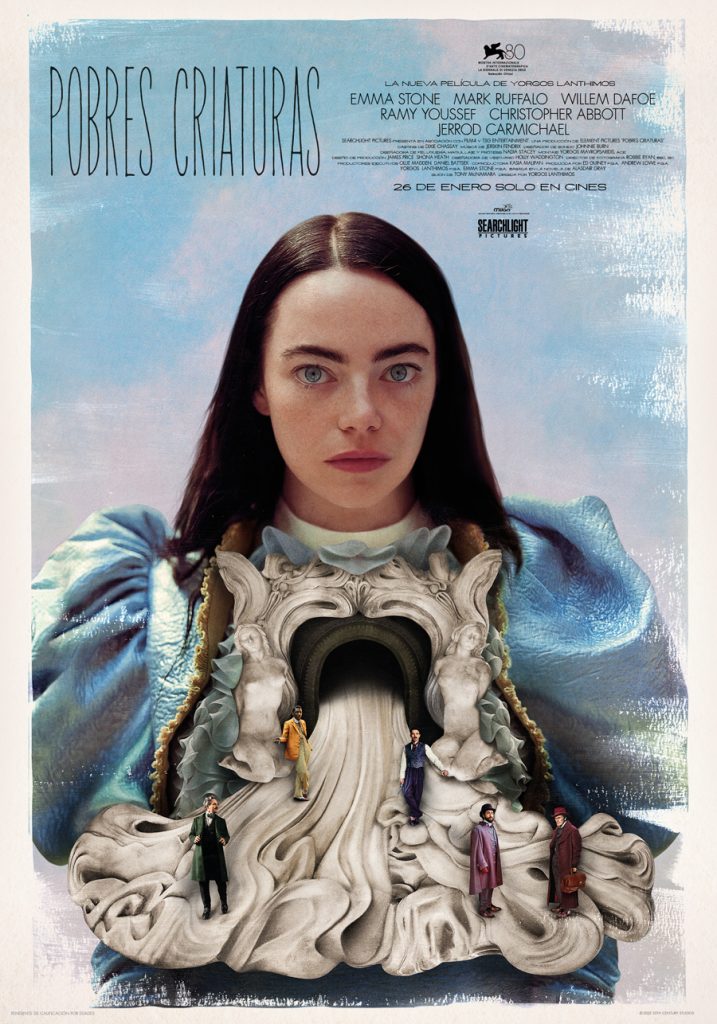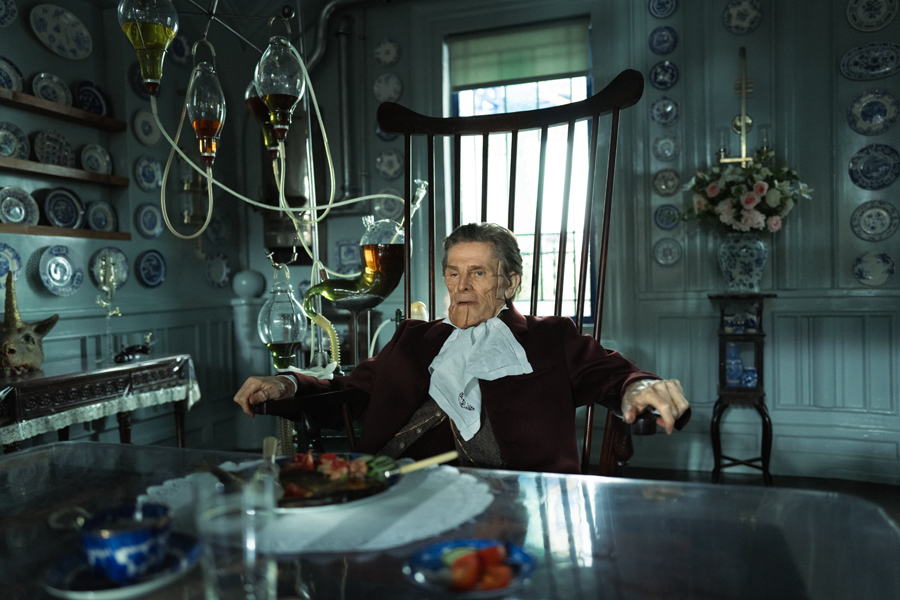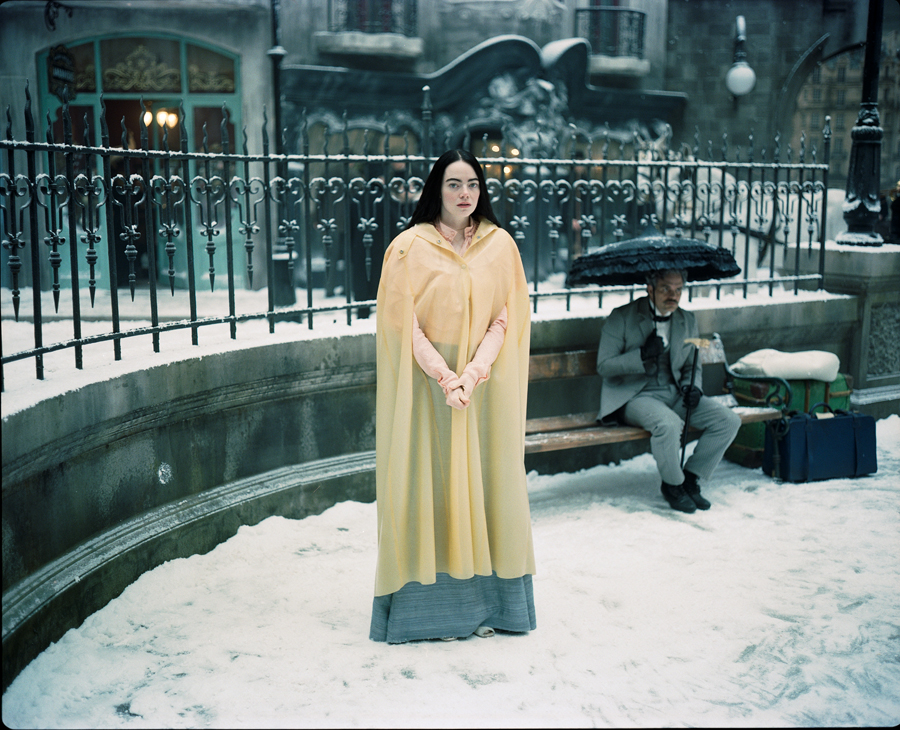 m.a.g.
m.a.g.

POOR THINGS by YORGOS LANTHIMOS
Yorgos Lanthimos’ latest cinematic venture is his most ambitious, explosive, and genre-bending work to date. An ultra-feminist tale of a young woman, Bella Baxter (played by an unhinged Emma Stone), who is the result of an experiment conducted by avant-garde surgeon, Dr. Godwin Baxter (Willem Dafoe). Bella liberates herself from man-made constraints – quite literally – and embarks on a sensual journey of self-discovery. After all, you have to go away to find yourself, isn’t that true? In Bella’s case, she needed to put a healthy distance between herself and God (that’s what she calls Dr. Baxter, you see, highly problematic).
Picture a grown woman experiencing life for the very first time – this is Bella, dashing through carnal desires, abandoning herself to a kaleidoscope of highly stimulating experiences: eating, drinking, masturbating, reading, dancing, oh, and a whole lot of sex. Bella swiftly evolves into an independent being guided by her rebellious spirit, insatiable curiosity, and a rampant sex drive. She is quick to dismiss societal norms in favor of the empirical path to self-realization. However, beyond the allure of hedonistic pleasures, it becomes evident that Bella is not solely destined for a life of debauchery. The narrative hints at a deeper exploration as Bella confronts the injustices of the world that lie undiscovered, adding layers of complexity to her character.

The film seamlessly balances its political and philosophical themes with deliciously absurd dialogue, slapstick comedy, and Bella’s hilariously accurate and quotable reflections on life. Real-world issues are ingeniously refracted through the lens of anti-realism, thereby amplifying and exposing the absurdities of human life. The narrative daringly confronts societal norms, particularly delving into the contentious realm of female body autonomy. Bella Baxter’s journey becomes a symbolic rebellion against gender-based control and inequality.
While «Poor Things» proudly bears the arthouse label, it is certainly at the vanilla end of the body horror spectrum and therefore easily digestible for more mainstream audiences. Within this cinematic tapestry, Bella Baxter emerges as a Barbie Frankenstein, capturing attention with her extravagant and playful wardrobe adorned with ruffles and puff sleeves. To further Yorgos’ maximalist agenda, the film features hallucinogenic visuals, reminiscent of Alice in Wonderland, which offer a glimpse into life as perceived through Bella’s liberated mind. Elaborate locations, meticulously crafted in studios across Europe, contribute to the immersive experience, employing a blend of 1930s studio techniques and state-of-the-art filmmaking. There is no doubt that every department got the memo “more is more”.

With the time and space continuum fully disregarded, Bella’s story is universal and timeless. It becomes evident that there is no one more powerful than an independent woman, as Bella fearlessly challenges patriarchal values and oppressive systems. We watch her grow into an emancipated person while she relishes in the delights of hedonism. Initially appearing helpless and clumsy, the effervescent Bella proves to be more than just an experiment: She becomes her own person. Poor Things is not just a film but a firework of creativity, inviting audiences to go on a profound journey of self-exploration.
Words: Maja Anhel Vuk

